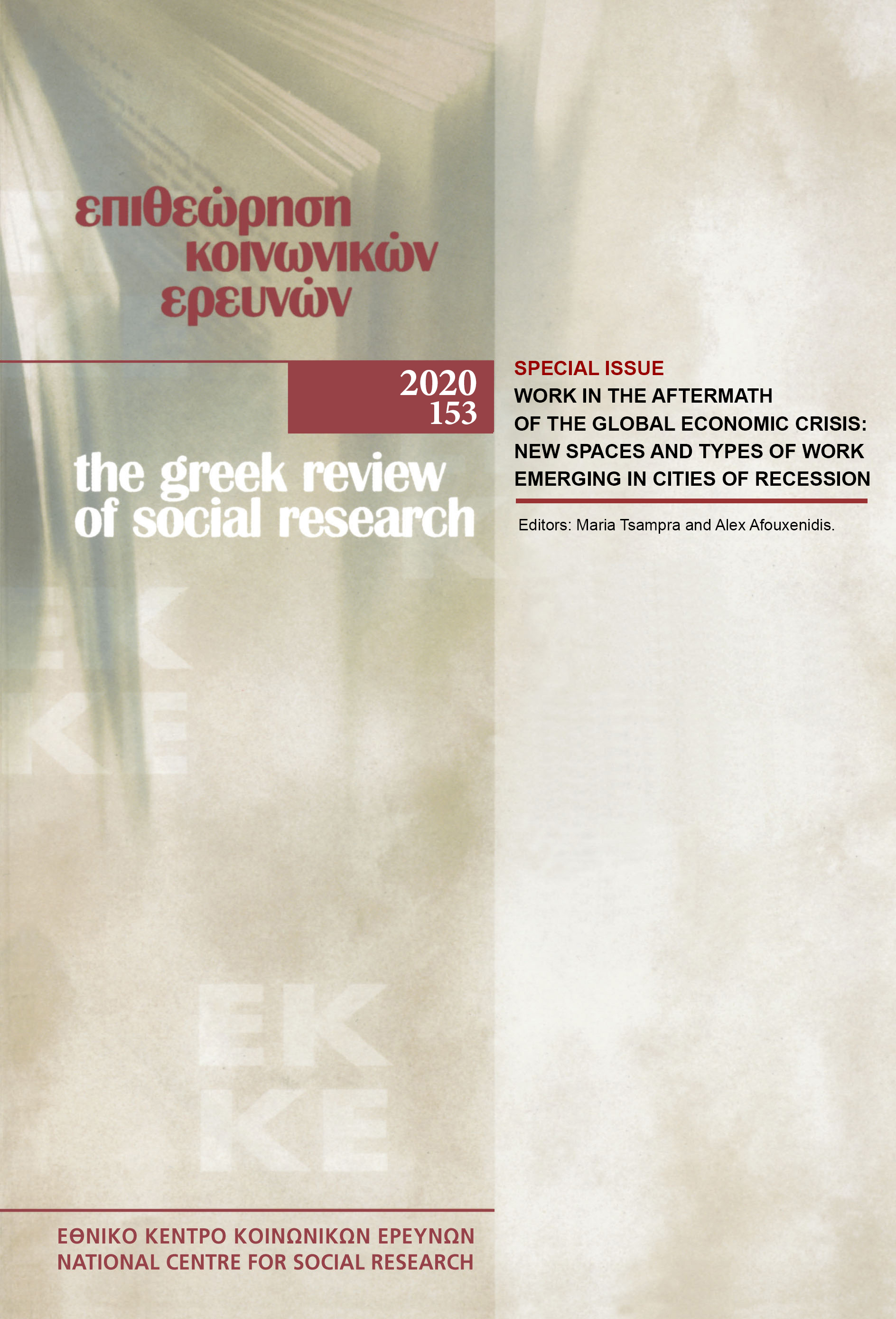The emergence of the “jazz neighbourhood” of Kerameikos in recession Athens

Abstract
This paper maps the transformations related to the work practices of jazz venue owners and professional jazz musicians as a response to the crisis, and the ways in which these practices are spatialized in the area of Kerameikos in Athens, Greece. It is based on ethnographic fieldwork, conducted in 2015-2017 as part of my ethnomusicological doctoral research regarding the Athenian jazz scene in the post-2010 era. As I argue, the financescape disruption that occurred in 2010 triggered an impressive rise of small-scale musical performances and at the same time led to the prioritization of a globally-informed locality. In Kerameikos this process has been further assisted by the decelerating rhythms of gentrification, where shifts in the work practices of musicians and venue owners alike have brought together two concepts pertaining seemingly to contradicting social imaginaries, that of jazz and kafeneio, adding further to the emergent puzzling urban crisis-scape during this tumultuous period.
Article Details
- How to Cite
-
Vavva, G. (2020). The emergence of the “jazz neighbourhood” of Kerameikos in recession Athens. The Greek Review of Social Research, 153, 37–59. https://doi.org/10.12681/grsr.22339
- Section
- Articles

This work is licensed under a Creative Commons Attribution-NonCommercial 4.0 International License.
Authors who publish with this journal agree to the following terms:
- Authors retain copyright and grant the journal right of first publication with the work simultaneously licensed under a Creative Commons Attribution Non-Commercial License that allows others to share the work with an acknowledgement of the work's authorship and initial publication in this journal.
- Authors are able to enter into separate, additional contractual arrangements for the non-exclusive distribution of the journal's published version of the work (e.g. post it to an institutional repository or publish it in a book), with an acknowledgement of its initial publication in this journal.
- Authors are permitted and encouraged to post their work online (preferably in institutional repositories or on their website) prior to and during the submission process, as it can lead to productive exchanges, as well as earlier and greater citation of published work (See The Effect of Open Access).


